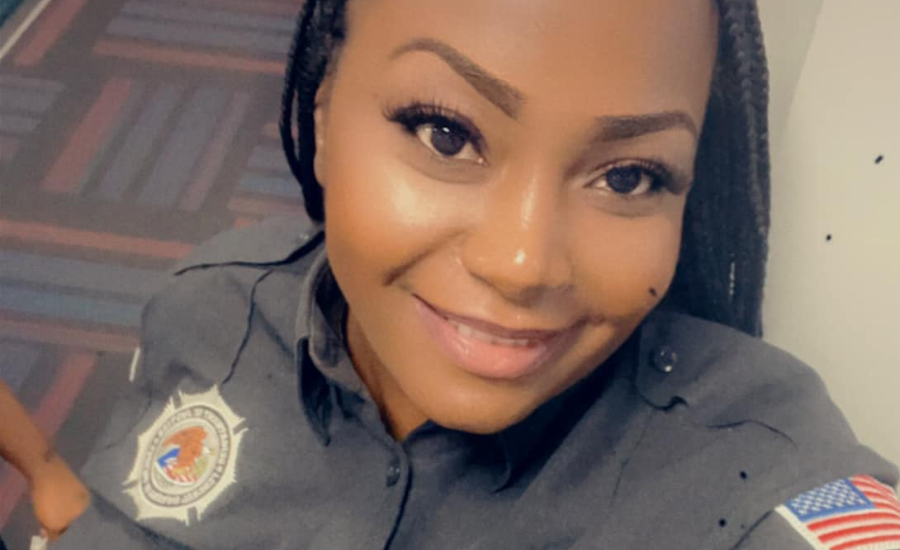Pastor apologizes after Black woman says she was called ‘colored’ and blocked from entering white church
African American woman, Donna Mac, 34, said she was called colored and blocked from entering a white church, First Baptist Church of Forrest City in Arkansas, on Sunday, June 26, 2022. The senior pastor, Steve Walter, has apologized and called it a “miscommunication.”
By Danielle Tyler // Racism // EEW Magazine Online
Christian churches are known for promoting Christ’s supremacy, but a Southern Baptist church in Arkansas is accused of embracing White Supremacy.
Donna Mac, an African American woman, said she received an “initial invite” to First Baptist Church of Forrest City for Sunday service but was blocked from entering and called “colored” by white church members—an incident for which the senior pastor has apologized.
“It is the result, I believe, of some miscommunication, but nevertheless, significant,” explained Pastor Steve Walter, who said he was “apologetic” while addressing the congregation on June 26, the day the controversial encounter happened.
After Forrest City resident Donna Mac posted her experience on her Facebook page, she received thousands of shares and hundreds of comments.
Mac, 34, who took to Facebook to express her dismay, said an “older white man” met her and her guests at the door and asked, “Well what you want to come in for?”
“We responded, ‘Church,’” Mac continued. “He stated, ‘Church doesn’t start until 11am’” –though she said, “other members” were allowed to enter “at this time.”
Things further deteriorated when Mac asked an “older white lady” this question: “Is everyone not welcome here?”
“We’ve had coloreds here before,” the woman replied.
“I asked, ‘What do you mean coloreds? Do you mean Black people?’” responded Mac.
The woman allegedly doubled down, informing the visitor, “When I was growing up, we always called them coloreds.”
Mac, stunned, said, “We just looked at her and left! My feelings are so hurt!”
Black people were commonly called “colored” or “negro” in the 20th century, but that changed in the 1960s when leaders like Malcolm X rejected such terms that were closely linked to slavery and Jim Crow. By the 1980s Jesse Jackson advocated for Black people being called “African American.”
But, apparently, not everyone in Forrest City—a town originally named in honor of Confederate general and Ku Klux Klan leader, Nathan Bedford Forrest—got the memo.
When Mac was asked by some why she chose to visit a white church, she told her Facebook followers, although “there are multiple Black churches in the area,” she went to First Baptist because “this one happens to be in my community” which is a “predominantly Black neighborhood.”
Pastor Walter, who appeared tense, worried, and uncomfortable while discussing the blowup from the pulpit, admitted that the word coloreds carries a “very high level of offense for the African American community today.”
“I do not believe that it was malicious but a poor choice of terms in light of today’s culture,” he said, adding, “We have to be mindful and careful at all times in this environment to be correct and to be sensitive in our terminology.”
Mac’s Facebook post alleging racism has drawn the attention of thousands and also put First Baptist on the defensive. “The church phone is blowing up, literally, with calls asking if we’re a racist church,” said the pastor.
“How this plays out, I don’t know,” he continued. “But I’ll tell you this: I will resign this morning if we are not a church that will receive any and everybody into those doors to worship with us.”
The audience applauded.
Mac said, “I’ve been raised in Forrest City my entire life, and I have never experienced racism to this extent in my very own community. Yes, I’m very familiar that this town was founded by a KKK member, however my roots are here, and I will always take a stand, no matter what, when I feel offended.”
While many slammed the church as racist, Mac clarified, “I’m not saying the church as a whole exemplified racism. I’m speaking on the individuals we encountered.”
Despite the bad experience, she said, “I believe in Christianity, and I will never give up on the power of God and His unchanging hand.”
To conclude his Sunday remarks, Pastor Walter ended with a specific prayer asking God for “wisdom” to use “language that is uplifting, that is authentic, that it is seasoned with Your grace.”
Watch his full statement below.
FBC Forrest City Incident from Chad Jones on Vimeo.


